Democracy, the essence of a thriving nation, stands on the pillars of freedom, accountability, and representation of the people’s will. However, recent developments in the Senate of Pakistan and some other non-democratic movements by the PDM have sparked concerns over the future of democracy in the country. The introduction of a new bill in 2023, supposedly under the pretext of the National Action Plan 2015, has raised eyebrows and drawn attention to its potential implications for democratic political parties.
On the other hand, by transferring the reserved rights of an elected government to a caretaker government, the PDM risks undermining democratic principles and eroding public trust in the fairness of the political process. This article delves into the controversial bill and sheds light on the implications it poses for Pakistan’s democracy.
A. Unravelling the Bill’s True Intent
The bill presented in the Senate of Pakistan, framed under the guise of the National Action Plan 2015, has raised suspicions regarding its true intent. While the original plan aimed to combat terrorist organizations with national consensus, the new bill appears to have a different agenda – controlling democratic political parties.
1. Senators from the Ruling Party Express Concerns
Even senators from the ruling party have expressed reservations about the bill’s provisions. Some have questioned how it allows for the suppression and control of democratic political parties in the future. Rana Sanaullah, a prominent figure within the ruling party, has come under scrutiny for supporting a bill with seemingly oppressive conditions.
2. Curtailing Political Rights through Broad Definitions
One concerning aspect of the bill is its broad and vague definitions of “violent extremism” and actions deemed “against the state.” This puts immense power in the hands of the government to label any political, student, labour, or religious organization as anti-state. This provision raises fears of potential misuse and mishandling of opposition parties.
3. Threat to Freedom of Expression
The bill poses a significant threat to freedom of expression. Under Article 144 of Pakistan, the government can prohibit gatherings, protests, and demonstrations involving more than four people, thereby silencing voices of dissent. Following the enactment of this bill, the government gains the authority to potentially misuse Article 144. Media outlets would also be restrained from reporting on certain parties, individuals, or organizations, further suppressing democratic discourse.
4. Targeting Individuals and Parties
The bill empowers the government to impose restrictions, bans, or charges against individuals or entire parties. Social media usage can be prohibited, and individuals associated with the targeted party may be house-arrested without warning. The government can even take over the party and seal its assets and bank accounts, effectively crippling its operations.
5. Surveillance and Travel Bans
Law enforcement agencies gain significant authority to monitor the activities of leaders and members of targeted political parties. Leaders and followers may face travel bans, with passports being cancelled or blocked. Furthermore, licenses for personal or security-guard-held weapons may be revoked, and their assets could be confiscated.
6. Disenfranchising Political Parties
The bill goes as far as disqualifying targeted parties from participating in elections at any level. Additionally, anyone providing funds or assistance to such parties will also face severe charges and confiscations.
7. PDM’s Intriguing Scheme
The 9th May event aimed at crushing PTI and Imran Khan appears to be part of a larger scheme by the Pakistan Democratic Movement (PDM) and the establishment. While the bill is being touted as a means to control PTI, it poses long-term threats to democracy in Pakistan, potentially inhibiting political activities and election campaigns for all parties.
Trial Court Judge Dismisses Allegations Against Imran Khan
In a significant development on July 23, 2023, the trial court judge, Additional District and Sessions Judge Farrukh Fareed Baloch, issued a written order stating that the assumption of a conspiracy by Pakistan Tehreek-e-Insaf (PTI) Chairman Imran Khan to incite violence on May 9 was ridiculous and baseless. The judge firmly rejected the notion that Imran Khan had planned his arrest as part of a scheme to carry out violence across the country.
The order was issued following a pre-arrest bail plea hearing in connection with the May 9 violence case registered against Imran Khan at Shahzad Town police station in the city. The judge emphasized that no clause, especially related to incitement of violence, had been misinterpreted or misused in the case. He stressed that a clear nexus must be established between the act of incitement and the actual commission of the crime.
Furthermore, the judge asserted that it was essential to prove that the offence was committed as a result of provocation. He pointed out that it was an admitted fact that Imran Khan was already in the custody of the National Accountability Bureau (NAB) when the violent protests occurred on May 9, leading to the vandalism of state and army properties and a memorial.
The judge also criticized the accusation, exposing the malicious and nefarious motives of the police, and stated that handing over Imran Khan to them would only subject the accused to unnecessary humiliation. Consequently, the court granted Imran Khan’s pre-arrest bail on a surety bond of Rs5,000.
B. Undermining the Role of Elected Governments
Another concerning aspect of the PDM regime is its tendency to shift legislative responsibilities to a caretaker government, a role typically designated for elected governments as per Pakistan’s constitution. This move raises suspicions of an attempt to prolong the caretaker setup and delay the scheduled elections of October 2023.
The PDM seems to be aware of its diminishing popularity, as indicated by various election surveys. The fear of facing a significant defeat in the 2023 elections, where Imran Khan is projected to secure a resounding 2/3rd majority victory, might be driving their decision to cling to power through such manoeuvres.
By entrusting legislative responsibilities to a caretaker government, the PDM may seek to buy time and retain control, potentially undermining the democratic process and the people’s right to vote for their representatives in a timely manner. Such actions raise questions about the PDM’s commitment to upholding democratic principles and respecting the will of the electorate.
Conclusion
The bill presented in the Senate of Pakistan, under the pretext of the National Action Plan 2015, appears to be a wolf in sheep’s clothing. While it claims to tackle extremism, it poses a significant threat to democracy in Pakistan, stifling freedom of expression, curtailing political rights, and targeting democratic political parties. If passed, it could have far-reaching consequences, undermining the very essence of a democratic nation.
In a democratic system, the transfer of power through free and fair elections is the cornerstone of a functioning government. Any attempt to manipulate or postpone this process not only undermines the democratic foundations but also erodes public trust in the political system. All parties need to uphold democratic values and allow the electoral process to unfold without interference or delay.
FAQs (Frequently Asked Questions)
1. How does the bill threaten democracy in Pakistan? The bill gives excessive powers to the government to label political organizations as anti-state, suppress opposition parties, and curtail freedom of expression, thereby threatening the core principles of democracy.
2. Can the ruling party senators oppose the bill? Yes, even senators from the ruling party have expressed concerns about the bill’s provisions, questioning its impact on democratic political parties.
3. What is the role of the PDM in the bill’s passage? The PDM’s involvement in the 9th May event and support for the bill suggests a larger scheme to undermine political opponents, including PTI, and control democratic processes.
4. How will the bill affect media freedom? The bill allows the government to restrict media from reporting on specific parties, individuals, or organizations, thereby limiting media freedom and hindering democratic discourse.
5. What can citizens do to protect democracy? Citizens can raise awareness about the bill’s implications, engage in peaceful protests, and demand transparency and accountability from their elected representatives.

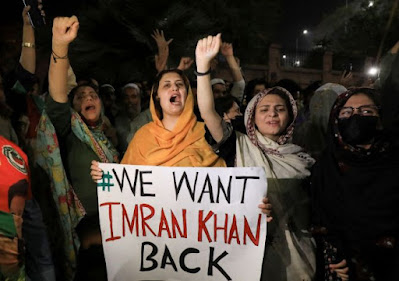



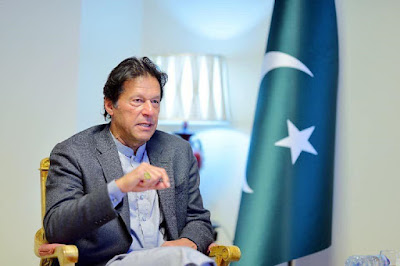
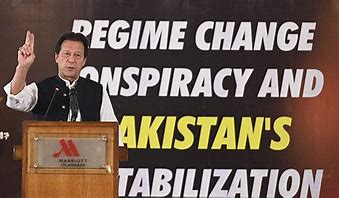
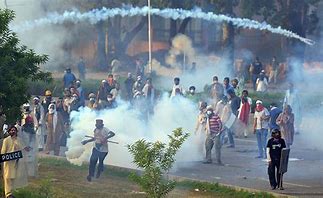

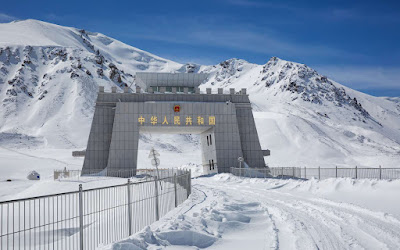

One Comment